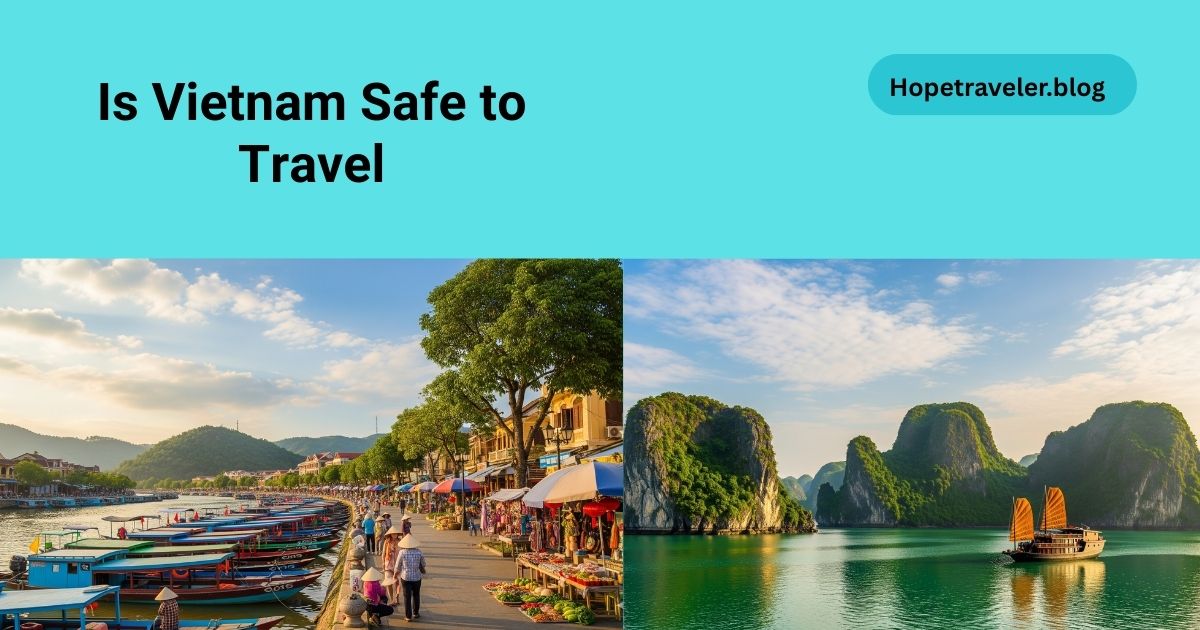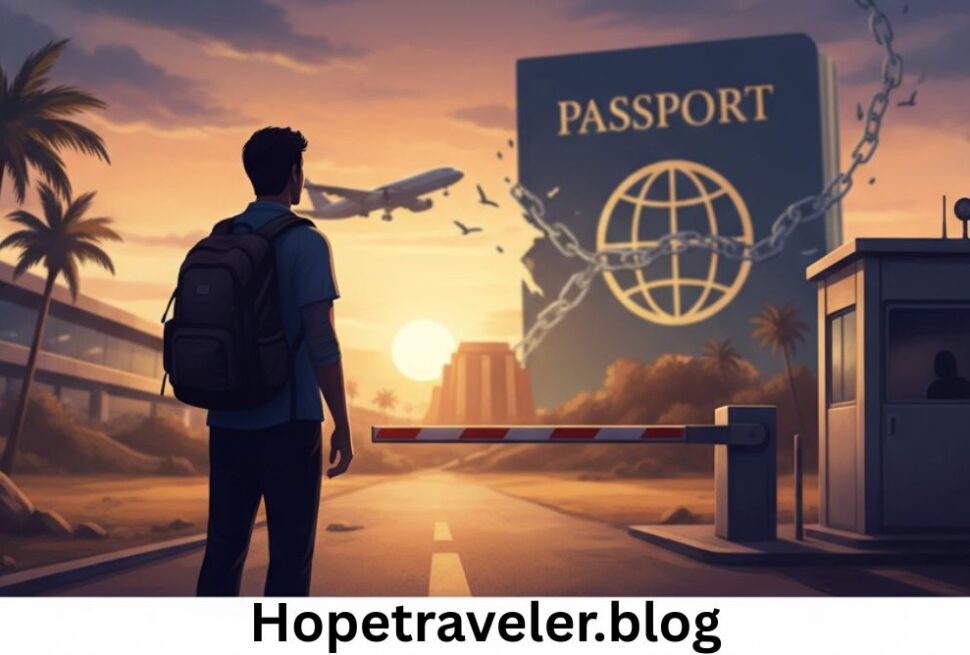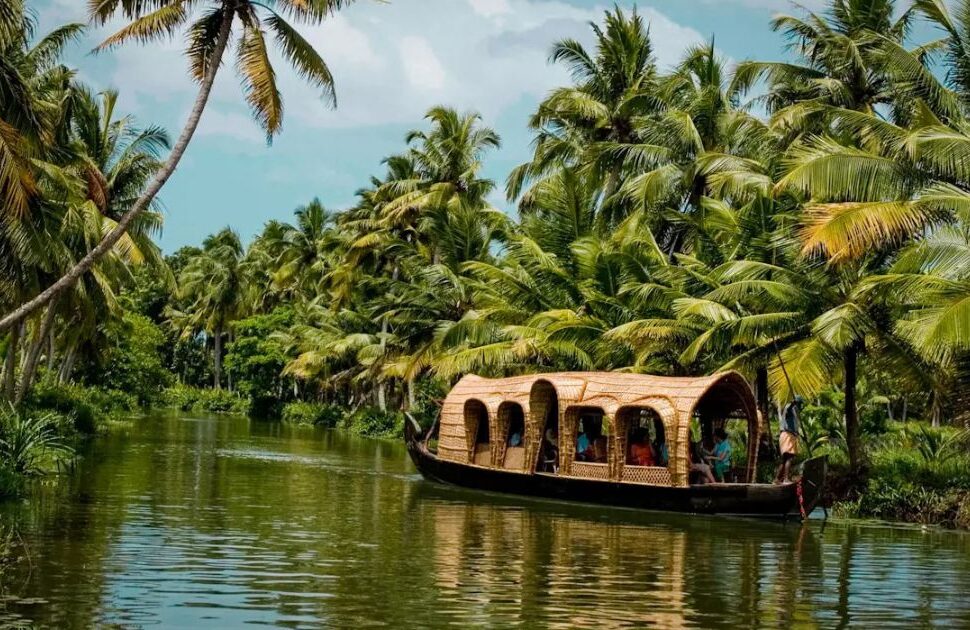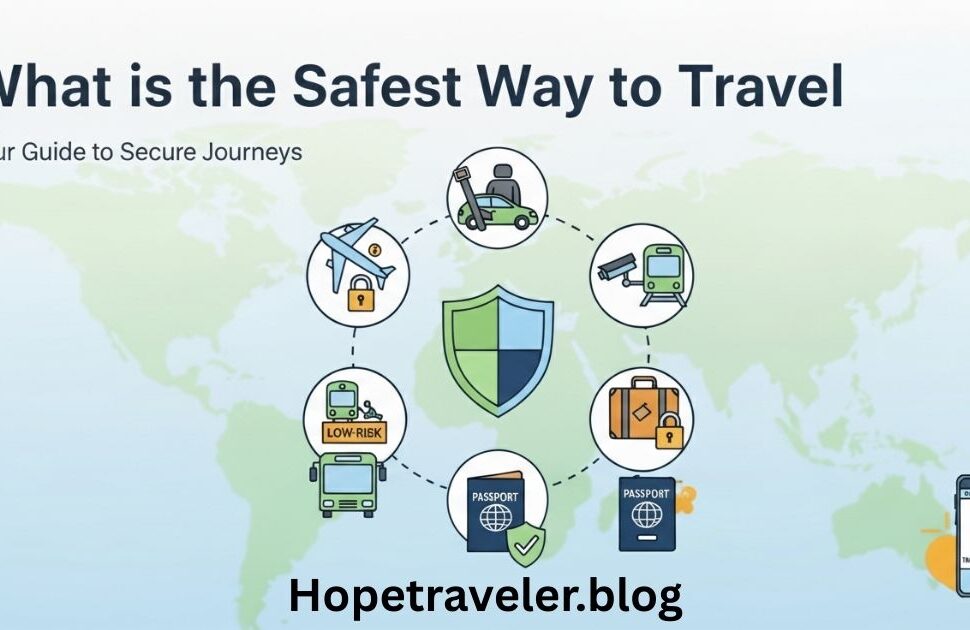Vietnam has emerged as one of the most popular destinations in Southeast Asia, attracting millions of international visitors each year. Known for its breathtaking landscapes, rich culture, delicious cuisine, and affordable costs, it’s no surprise that travelers are drawn to this fascinating country. However, many people ask the question: Is Vietnam safe to travel?
According to Wikipedia, Vietnam’s tourism industry has grown rapidly in recent decades, making it a key part of the nation’s economy. Safety, therefore, is an important consideration for both the government and travelers alike.
General Safety in Vietnam
Overall, Vietnam is considered a safe country to travel to. Violent crime against tourists is rare, and most visits are trouble-free. The majority of safety concerns are related to petty theft, road traffic, and natural conditions rather than serious threats.
Vietnamese people are known for being warm and hospitable, which adds to the sense of security many travelers feel. Still, like any destination, exercising caution and awareness helps ensure a smooth journey.
Crime and Tourist Safety
Petty Theft
The most common safety issue for travelers in Vietnam is petty crime such as pickpocketing, bag snatching, or scams. Crowded areas, markets, and tourist hotspots can attract opportunistic thieves. Motorbike snatch-and-grab thefts are also reported, particularly in big cities like Ho Chi Minh City and Hanoi.
Tip: Keep valuables secure, avoid flashing expensive gadgets, and consider using anti-theft bags.
Violent Crime
Serious violent crime against foreigners is rare. While disputes or arguments may sometimes escalate in nightlife districts, tourists are seldom targeted.
Scams
Scams can occur in taxis, street markets, or tours. Overcharging or misrepresentation is the most common issue. Booking through reputable companies and checking prices beforehand minimizes risk.
Road Safety in Vietnam
One of the biggest risks travelers face in Vietnam is traffic. The roads are busy, chaotic, and filled with motorbikes.
- Motorbike use is widespread, but accidents are common due to unpredictable driving styles and lack of enforcement.
- Pedestrian safety is challenging in cities where crosswalks are often ignored.
- Buses and trains are generally safer options for long-distance travel.
Travelers inexperienced with motorbikes are often advised not to drive one themselves. Instead, using ride-hailing apps or taxis can be a safer choice.
Natural and Environmental Risks
Vietnam’s geography and climate pose some natural challenges:
- Flooding and typhoons – During the rainy season (May to November), heavy rains can lead to flooding or travel disruptions.
- Heat and humidity – The tropical climate can cause dehydration or heat exhaustion for unprepared travelers.
- Mosquito-borne illnesses – Dengue fever and malaria exist in certain rural regions.
With proper planning—such as buying travel insurance, checking weather forecasts, and packing appropriate medicine—these risks can be managed.
Food and Health Safety
Vietnam is famous for its street food, but travelers sometimes worry about hygiene.
- Street food is generally safe if you choose vendors with high turnover (busy stalls).
- Water safety – Tap water is not recommended for drinking. Stick to bottled or filtered water.
- Healthcare – Major cities like Hanoi and Ho Chi Minh City have international hospitals, but rural areas may have limited facilities.
Travelers are encouraged to get vaccinations (such as Hepatitis A and Typhoid) before visiting.
Solo Travelers and Women’s Safety
Vietnam is generally safe for solo travelers, including women. Street harassment is minimal compared to some other countries, though unwanted attention can occasionally occur.
Safety tips for solo travelers:
- Avoid isolated areas at night.
- Choose reputable accommodations.
- Stay aware of surroundings in busy urban areas.
Many solo travelers report feeling comfortable and welcome throughout Vietnam.
Political and Cultural Safety
Vietnam is a one-party state with strong government oversight. Political demonstrations are rare, and tourists are not typically involved. However, visitors should avoid engaging in political discussions or photographing military installations.
Respecting local culture is also important. Modest clothing is appreciated in temples, and showing respect for elders is highly valued.
Transportation Safety
Domestic Flights
Vietnam’s aviation sector is modern and regulated, with airlines such as Vietnam Airlines and VietJet Air offering safe domestic connections.
Trains
Trains are a safer and scenic way to travel long distances, especially the famous Reunification Express from Hanoi to Ho Chi Minh City.
Taxis and Ride-Hailing
Use official taxi companies or apps like Grab to avoid scams and ensure safe transport.
Natural Attractions Safety
Vietnam is home to stunning natural wonders like Ha Long Bay, Sapa, and the Mekong Delta. While safe to visit, travelers should take precautions:
- Use life jackets during boat rides.
- Wear proper hiking gear in mountainous regions.
- Follow local guides’ advice for outdoor adventures.
LGBTQ+ Traveler Safety
Vietnam is relatively tolerant compared to some neighboring countries. Homosexuality is legal, and public attitudes are becoming more open. LGBTQ+ travelers generally feel safe, though public displays of affection may attract attention in conservative areas.
Comparing Vietnam to Other Destinations
When compared to many other travel destinations, Vietnam fares well in terms of safety:
- Lower violent crime rates than some Western cities.
- Higher petty theft risk compared to countries like Japan or Singapore.
- Road traffic accidents are more common than in developed nations.
Overall, Vietnam is safer than many assume, provided travelers take basic precautions.
Tips for Safe Travel in Vietnam
- Stay alert in busy areas – Protect valuables in markets and tourist hubs.
- Use reliable transport – Choose reputable taxi or ride-hailing services.
- Avoid driving motorbikes unless experienced.
- Stay hydrated and protect against heat.
- Buy travel insurance – Especially for medical or accident coverage.
- Respect local customs – Dress appropriately in temples and follow cultural etiquette.
Conclusion
So, is Vietnam safe to travel?
Yes, Vietnam is generally a safe country for international visitors. Violent crime is rare, and most safety concerns involve petty theft, traffic conditions, and natural elements like weather. With millions of tourists visiting annually, Vietnam has proven to be welcoming and secure for travelers from all backgrounds.
By staying cautious, respecting local culture, and making informed choices, visitors can enjoy Vietnam’s stunning landscapes, rich traditions, and unforgettable experiences with peace of mind.




